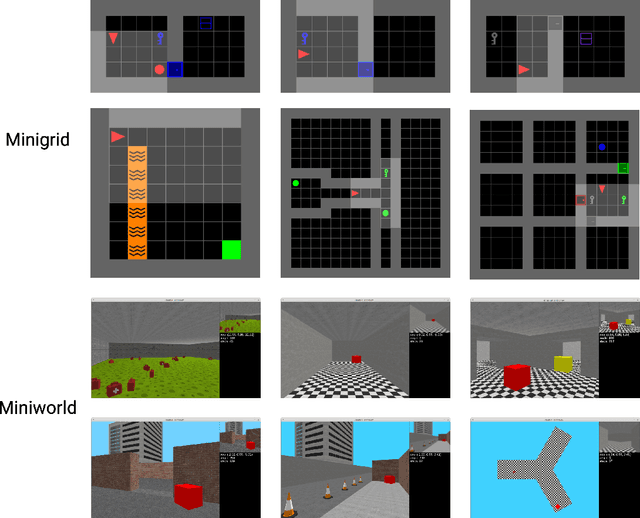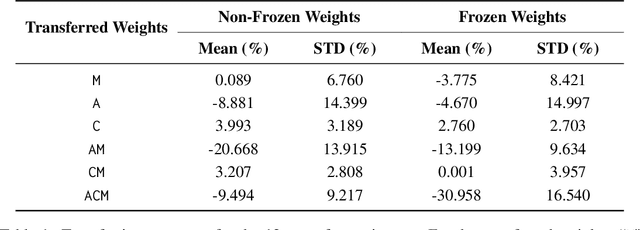Jordan Terry
Multi-Task Reinforcement Learning Enables Parameter Scaling
Mar 07, 2025



Abstract:Multi-task reinforcement learning (MTRL) aims to endow a single agent with the ability to perform well on multiple tasks. Recent works have focused on developing novel sophisticated architectures to improve performance, often resulting in larger models; it is unclear, however, whether the performance gains are a consequence of the architecture design itself or the extra parameters. We argue that gains are mostly due to scale by demonstrating that naively scaling up a simple MTRL baseline to match parameter counts outperforms the more sophisticated architectures, and these gains benefit most from scaling the critic over the actor. Additionally, we explore the training stability advantages that come with task diversity, demonstrating that increasing the number of tasks can help mitigate plasticity loss. Our findings suggest that MTRL's simultaneous training across multiple tasks provides a natural framework for beneficial parameter scaling in reinforcement learning, challenging the need for complex architectural innovations.
Gymnasium: A Standard Interface for Reinforcement Learning Environments
Jul 24, 2024Abstract:Gymnasium is an open-source library providing an API for reinforcement learning environments. Its main contribution is a central abstraction for wide interoperability between benchmark environments and training algorithms. Gymnasium comes with various built-in environments and utilities to simplify researchers' work along with being supported by most training libraries. This paper outlines the main design decisions for Gymnasium, its key features, and the differences to alternative APIs.
Minigrid & Miniworld: Modular & Customizable Reinforcement Learning Environments for Goal-Oriented Tasks
Jun 24, 2023



Abstract:We present the Minigrid and Miniworld libraries which provide a suite of goal-oriented 2D and 3D environments. The libraries were explicitly created with a minimalistic design paradigm to allow users to rapidly develop new environments for a wide range of research-specific needs. As a result, both have received widescale adoption by the RL community, facilitating research in a wide range of areas. In this paper, we outline the design philosophy, environment details, and their world generation API. We also showcase the additional capabilities brought by the unified API between Minigrid and Miniworld through case studies on transfer learning (for both RL agents and humans) between the different observation spaces. The source code of Minigrid and Miniworld can be found at https://github.com/Farama-Foundation/{Minigrid, Miniworld} along with their documentation at https://{minigrid, miniworld}.farama.org/.
 Add to Chrome
Add to Chrome Add to Firefox
Add to Firefox Add to Edge
Add to Edge